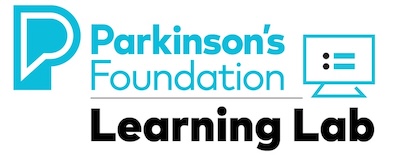Hospitalization in PD
 Each year, nearly one-third of the one million Americans living with Parkinson’s disease (PD) will experience a hospital encounter.
Each year, nearly one-third of the one million Americans living with Parkinson’s disease (PD) will experience a hospital encounter.
Despite the frequency of these encounters, delivery of quality hospital care for people with Parkinson’s remains elusive. Data from our Parkinson’s Outcomes Project shows that people with PD are not only at increased risk for hospitalization, they are also more likely to have avoidable complications, worsening PD symptoms, longer stays and poorer health outcomes.
The Parkinson's Foundation is driving the systemic change needed to accelerate better health outcomes and improved quality of life for people with Parkinson’s who experience hospital encounters. We can close these gaps in care by aligning the self-advocacy efforts of people with PD with clinical education and standardized care protocols in every hospital. Watch this activity to learn about the challenges that people with Parkinson's face in the hospital and what the interprofessional team can do to provide better care to this vulnerable population.
Syllabus | |
Hospitalization in PD Making Hospitals Safer for People with Parkinson's Additional Resources Exam Evaluation Credit and Certificate Claiming | |
Target Audience
This activity is designed to meet the educational needs of:
- Physicians
- Physician Assistants
- Nurse Practitioners
- Registered Nurses
- Psychologists
- Social Workers
Learning Objectives
At the end of this activity, learners will be able to:
1. Recognize the risks and challenges of people with Parkinson's disease in the hospital.
2. Identify the top clinical challenges faced by people with Parkinson's disease when they receive hospital care.
3. Discover opportunities for interprofessional team intervention to reduce hospitalization and apply this knowledge in practice.
4. Identify how the interprofessional team can help people with PD have better outcomes from hospitalization.
Parkinson’s Foundation adheres to the ACCME’s Standards for Integrity and Independence in Accredited Continuing Education. Any individuals in a position to control the content of a CE activity, including faculty, planners, reviewers, or others are required to disclose all relevant financial relationships with ineligible entities (commercial interests). All relevant conflicts of interest have been mitigated prior to the commencement of the activity.
Annie Brooks, MSW
Edie Simpson, RN
Elaine Book, MSW, RSW
Annie Brooks, MSW
Lucille Carriere, Ph.D
Heather Cianci, PT, MS, GCS
Darla Freeman, SLPD, CCC-SLP
Christine Hunter, RN, BSN
Erika Jacumin, PA-C
Denise Kornegay, MSW
Joan Miravite, DNP, RN, FNP-BC
Sotirios Parashos, MD, PhD
Julia Wood, MOT, OTR/L
Tasha Cockrum, PA-C
Jenna Iseringhausen, BSN, RN
 In support of improving patient care, Parkinson's Foundation is jointly accredited by the Accreditation Council for Continuing Medical Education (ACCME), the Accreditation Council for Pharmacy Education (ACPE), and the American Nurses Credentialing Center (ANCC), to provide continuing education for the healthcare team.
In support of improving patient care, Parkinson's Foundation is jointly accredited by the Accreditation Council for Continuing Medical Education (ACCME), the Accreditation Council for Pharmacy Education (ACPE), and the American Nurses Credentialing Center (ANCC), to provide continuing education for the healthcare team.
IPCE

This activity was planned by and for the healthcare team, and learners will receive 1.25 Interprofessional Continuing Education (IPCE) credit for learning and change.
Physicians
Parkinson’s Foundation designates this enduring activity for a maximum of 1.25 AMA PRA Category 1 Credit(s)™. Physicians should claim only the credit commensurate with the extent of their participation in the activity.
Nurses
Parkinson's Foundation designates this enduring material for a maximum of 1.25 ANCC contact hours. Participants should claim only the credit commensurate with the extent of their participation in the activity.
Physician Assistants

Parkinson’s Foundation has been authorized by the American Academy of PAs (AAPA) to award AAPA Category 1 CME credit for activities planned in accordance with AAPA CME Criteria. This activity is designated for 1.25 AAPA Category 1 CME credits. Approval valid through January 20, 2026. PAs should only claim credit commensurate with the extent.
Psychologists
 Continuing Education (CE) credits for psychologists are provided through the co-sponsorship of the American Psychological Association (APA) Office of Continuing Education in Psychology (CEP). The APA CEP Office maintains responsibility for the content of the programs. 1.25 CE hours.
Continuing Education (CE) credits for psychologists are provided through the co-sponsorship of the American Psychological Association (APA) Office of Continuing Education in Psychology (CEP). The APA CEP Office maintains responsibility for the content of the programs. 1.25 CE hours.
Social Workers
 As a Jointly Accredited Organization, Parkinson’s Foundation is approved to offer social work continuing education by the Association of Social Work Boards (ASWB) Approved Continuing Education (ACE) program. Organizations, not individual courses, are approved under this program. State and provincial regulatory boards have the final authority to determine whether an individual course may be accepted for continuing education credit. Parkinson’s Foundation maintains responsibility for this course. Social workers completing this course receive 1.25 ASWB credits continuing education credits.
As a Jointly Accredited Organization, Parkinson’s Foundation is approved to offer social work continuing education by the Association of Social Work Boards (ASWB) Approved Continuing Education (ACE) program. Organizations, not individual courses, are approved under this program. State and provincial regulatory boards have the final authority to determine whether an individual course may be accepted for continuing education credit. Parkinson’s Foundation maintains responsibility for this course. Social workers completing this course receive 1.25 ASWB credits continuing education credits.
Available Credit
- 1.25 AAPA Category I CME
- 1.25 AMA PRA Category 1 Credit™
- 1.25 ANCC
- 1.25 APA
- 1.25 ASWB ACE
- 1.25 IPCE Credit™
- 1.25 Participation

 Facebook
Facebook X
X LinkedIn
LinkedIn Forward
Forward